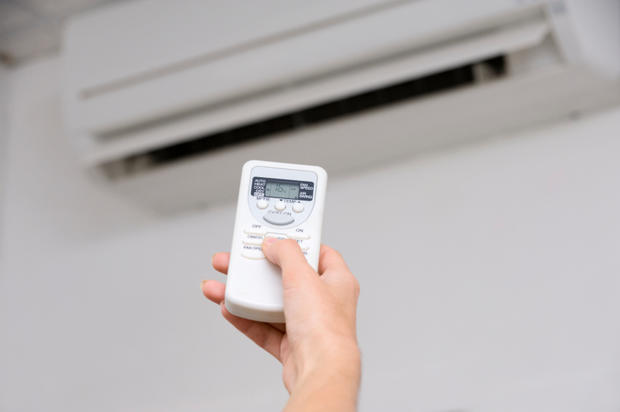Five easy ways to conserve energy in the home this summer
For those focused on saving money as well as conserving the planet's resources, energy conservation in the home has become synonymous with having integrity and making good choices. Others wish they could do more and bemoan the lack of time they have to reduce kilowatt hours and achieve energy efficiency. None of us are perfect, nor are our homes, but there are many ways to up energy conservation without sapping your own personal resources. Here are a few to get you started.
Temperature Control - Maintaining a comfortable temperature in your home year-round can be achieved without dialing the thermostat way up in winter or way down in summer. Make sure your home is adequately insulated in order to keep drafts to a minimum, and learn to love low-tech solutions, such as cozying up in socks and sweaters during cold months and using ceiling fans during hot months. Close off rooms that aren't being used in order to save energy and police your home for closets left ajar. You can also tap into passive solar heating solutions, even if your house is on the older side, by retrofitting it for maximum thermal insulation, shading and window placement. Temperature control also refers to your water heater, which should be kept in the 130-degree range.
Turn Off and Unplug - It may take some nagging, but enrolling your family in turning off the lights when they leave a room can save tons of electrical power and there are other no-brainer fixes that are easy to control. Nothing saps energy more than a television playing unendingly to an empty room. Computers that aren't in use can be unplugged or placed in hibernation mode, and chargers, coffee makers and toasters can be unplugged when they're not in use, as they continue to sap small amounts of energy simply by being plugged in. Consider plugging telephones, computers and printers into power strips you can shut down when not in use, such as during the overnight hours.
Buy Better Bulbs - Today's new generation of energy-efficient, long-lasting light bulbs cast a cleaner, more eye-soothing light than in years past and can make a significant dent in your energy usage and greenhouse gas emissions. Look for Energy Star Certified light bulbs, which meet U.S. Environmental Protection Agency guidelines.
Wash Dishes By Hand, The Right Way - Save the dishwasher for large family dinners and holidays and switch to hand washing for everyday meals. The most efficient way to wash dishes by hand is to soap them all up first without the water running and then rinse. Consider installing a low-flow kitchen faucet or aerator for added reduction in water use.
Wash Clothing in Cold Water - Cold water or liquid detergents work well on even the most stained clothing, particularly if you also utilize a pre-wash on tough stains. Washing clothing in cold water dramatically reduces energy usage. Also do full loads to get the maximum benefit out of your conservation efforts.
Employ the Sun - It may be old school, but line drying your laundry will not only save on energy costs, but will also sanitize, soften and sweeten the scent of your clothing. During inclement weather, consider hanging a laundry line near the boiler in the basement or in another unused area of the home.
Celebrate Salad Days - Turn off the oven and gas range as much as possible during hot weather in order to reduce heat emission in the home which can result in added stress on the A/C. Learn to love the grill and cold meals you can prepare indoors. If you must use the oven, consider batching a week's worth of meals and cooking them at one time.
Corey Whelan is a freelance writer in New York. Her work can be found at Examiner.com.




